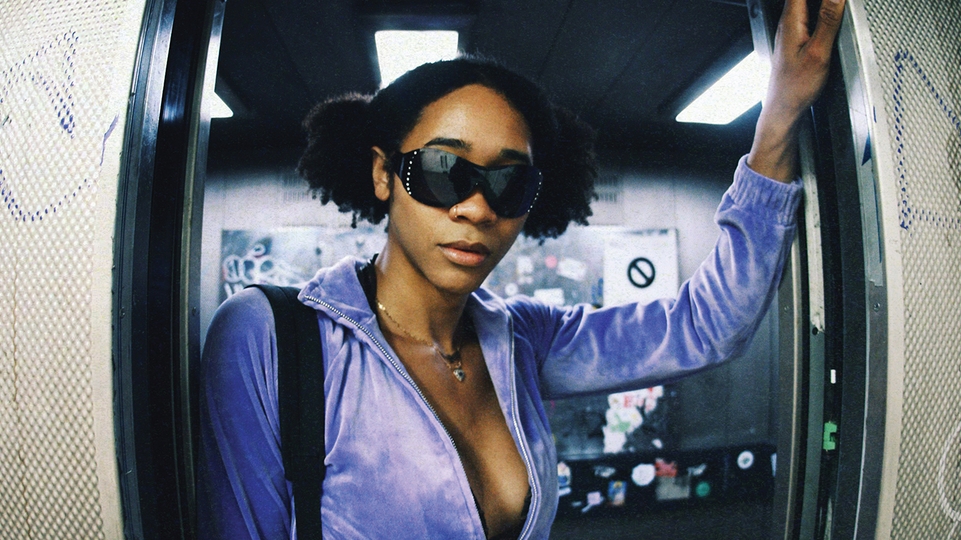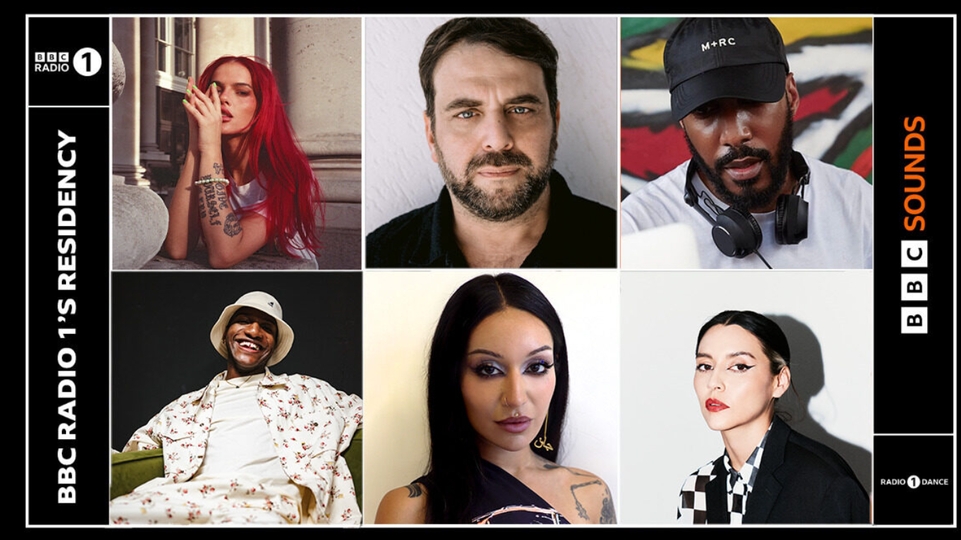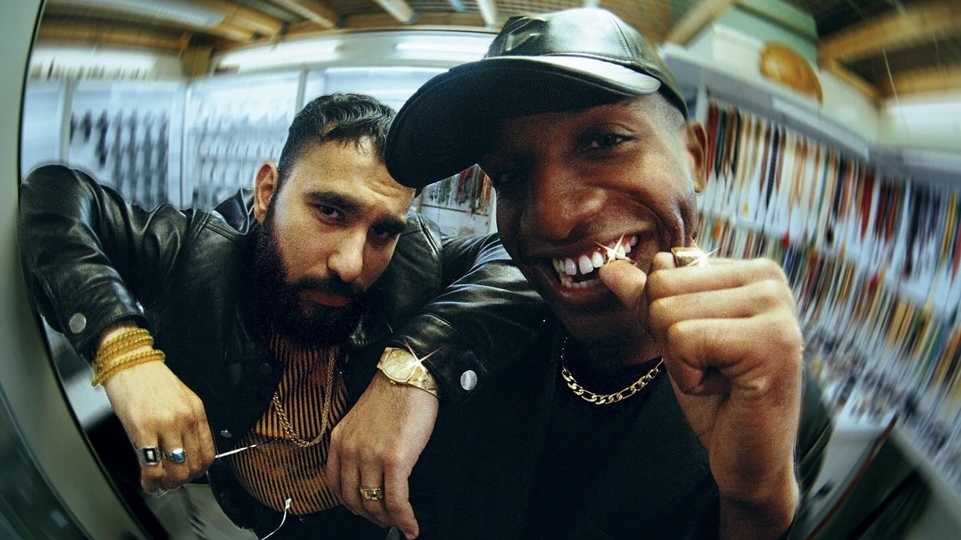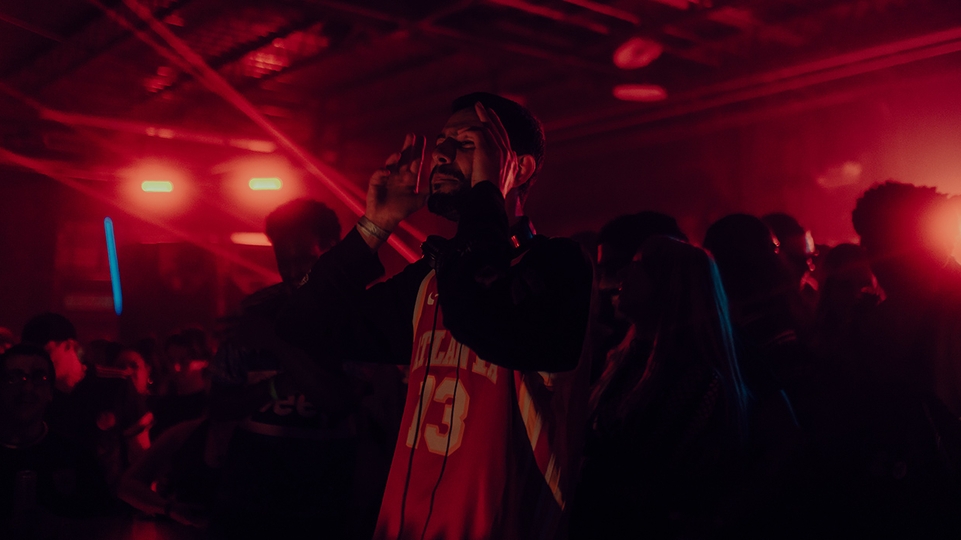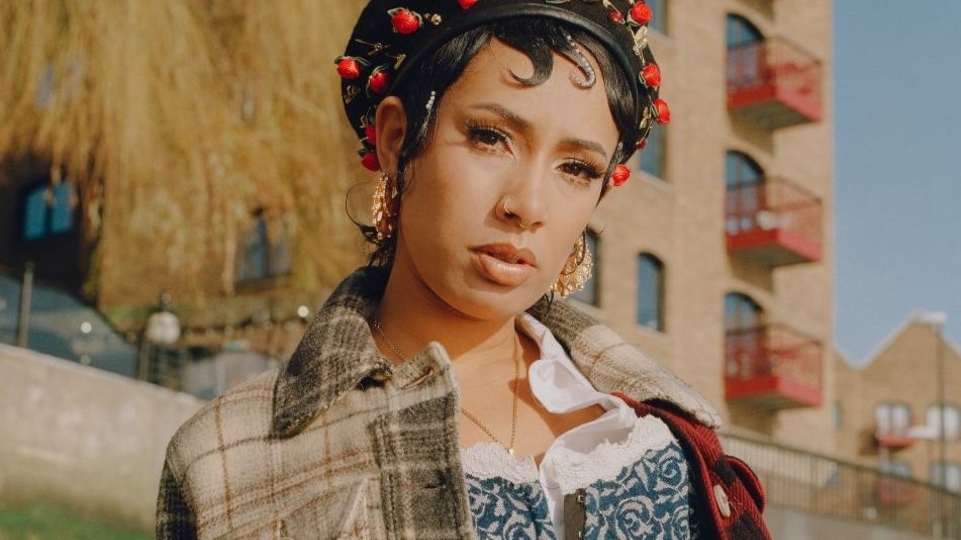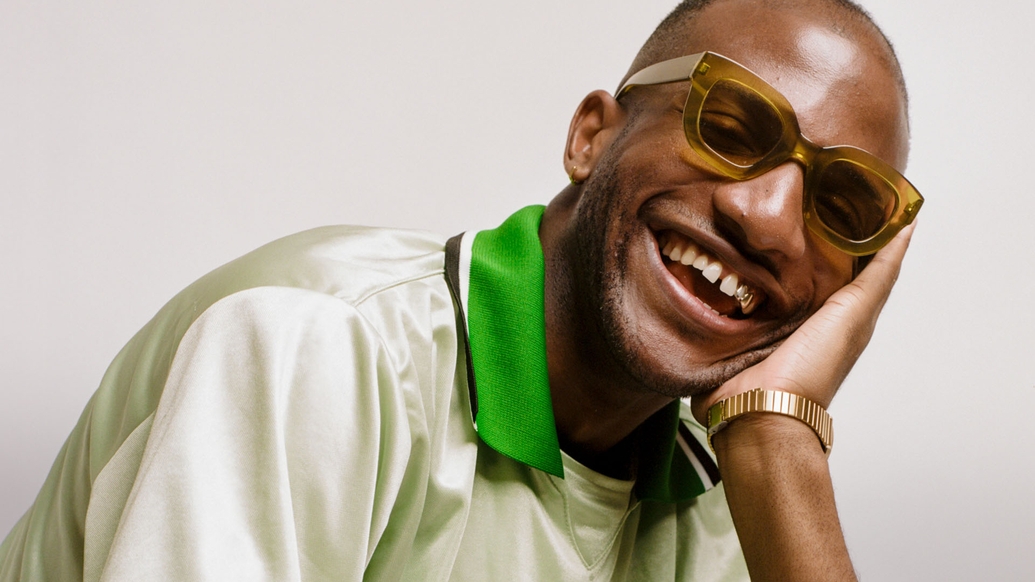
Conducta: follow the leader
Conducta is helping to spearhead the new wave of UK garage. His on-point productions, genre-traversing DJ sets and Kiwi Rekords label have made him a bona fide Black British success story. But just before his smash hit ‘Ladbroke Grove’ with AJ Tracey blew up, and his Club Kiwi label nights were set to launch, he was at a crossroads. Joseph ‘JP’ Patterson meets him to talk UKG, the whitewashing of dance music, and why he chose music over football
Speaking with British DJ, producer and label-head Conducta, 26, you’d be forgiven for thinking he was a seasoned music industry veteran with decades behind him, but he’s a young man who’s really been through the mill. He’s tussled with major labels, experienced trauma and encountered weird industry types, but he’s managed to come out the other side with an even brighter disposition and smile than before, his future now in his control.
Born in Bristol to Nigerian parents, Conducta, whose moniker was inspired by the ‘ta’ in Skepta, grew up on a diet of ‘90s R&B, Bad Boy-era rap, New Jack Swing and UK garage (UKG). He became obsessed with music television channel MTV Base as a young boy, and the discovery of Teddy Riley’s swagged-out take on R&B in particular blew his mind. “The mad thing about New Jack Swing was that it made the final lineage for it being normal for rap music to have singing in it,” he says. Conducta’s early musical tastes were more in-line with someone twice his age, and that innate hunger for understanding where genres come from, and how they bounce off one another, has put him in great stead. These influences can be heard throughout his own productions: in the melodic structure of ‘Come & Go’ with Alyss, ‘Steezing’ with Coco and J’Danna, and the vocal arrangements of ‘Not Enough’ and ‘Only U’.
While his ear was piqued by popular Black music from across the pond, Conducta also fell in love with Black British dance music. He would sit for hours in his bedroom and listen to MC-led tape- packs from raves, handed down to him by his clued- in godbrother. First came live recordings from Sun City and Garage Nation, the twin behemoth event promoters who brought UKG to the masses in the mid- to late-’90s. He would later throw that same energy into listening to grime and dubstep: devouring sets from Sidewinder, the travelling club-night that made early underground heroes out of DJs like Slimzee and MCs like Dizzee Rascal. “History, history, history,” he reiterates.
“Hearing the whistles in the raves and hearing someone say [ad-libs] as an MC, ‘Yo! This is crazy!’ — little moments like those are the little fragments that make [the listening experience] so special.” It’s a feeling that he wants to put into his own work, creating those special moments for a new generation of ravers. “I love that you can only get that by going back in history and understanding how people enjoy the thing. History and music are my two passions that I can merge into one.”
But he’s always had his eye on the future. At the start of 2019, Conducta launched Kiwi Rekords — a label dedicated to releasing the freshest UKG sounds on-road, from the likes of Jack Junior, Sharda and Sammy Virji. Conducta came up with the name in 2018 on the way to Bestival; never a fan of fruits, his manager’s sister had prepared a snack box for the crew, and there were kiwis inside. After playing his set and a day of festival silliness, he found the kiwis to be just the right kind of sweet ‘n’ sharp flavour he needed — just like the tone of his label’s sound.
“Before launching the Kiwi label, I studied Bad Boy and looked at how Diddy did it,” he says. “The way he did it, he made rappers into rock stars. He made them that image. For me, I want to make Kiwi a mainstay in the same way that Defected is in house music. I want Kiwi to become that as a brand. We’ll be doing our own nights in Ibiza in 20 years’ time.”


Lockdown
During the COVID-19 lockdown, Conducta has stayed busy. While working on his new flat in Ladbroke Grove, West London, he decided he would turn his living room into a makeshift club and call it ‘Conducta’s Crib’: live streaming two- and three-hour-long sets, playing everything from ’90s hip-hop to deep and tech-house. “Doing Conducta’s Crib kept me sane,” he says.
“Everyone’s plans went to shit because of COVID-19; I was about to do my America tour for the first time, too. But these live streams were fun because they would go on for hours, so every week I tried to keep it fresh. You don’t want to play the same thing twice.”
He also managed to make a new EP that expresses his “true freedom as an artist and producer — not just being that guy who makes UKG, but having all the influences that I’ve grown up on being on a UKG kind of palette.”
Growing up, music wasn’t Conducta’s only passion. He was massively into playing football and is a keen Arsenal supporter. In his school years, he found he had a natural ability for the sport and even took it to a level where he was playing regionally, with the possibility of a career ahead of him. But Conducta’s dad had different plans. He didn’t see a future for his son on the field and directed him to find something a little more traditional. “Study, study, study” was the mantra at home.
One weekend, on a trip back home from SOAS University of London — where he’d been studying Politics and History — his dad was talking about the news that Ivory Coast footballer, Yaya Touré, had signed to Manchester City with a weekly wage of £200,000. “If I knew footballers made this much,” his dad told him, “I would’ve pushed you so much harder.” Conducta’s response? “Fam, I’m leaving university and doing what I want.” And that’s exactly what he did.
By this point, he’d become a regular raver, spending his weekends at clubs that played strictly hip-hop, R&B and UKG. What about house music? “A lot of the housier stuff didn’t speak to me as much until later on,” he says. Instead, he fell for the rough ‘n’ ready hyperactive thump of bassline (or 4x4, niche), one of UKG’s finest mutations. Birthed in the North of England in the early ’00s, and spearheaded by the likes of Jamie Duggan, T2, TS7 and the living legend that is DJ Q, it’s a sound that Conducta effortlessly blends into his sets. Conducta’s first introduction to bassline was at an afterparty. “I played this show at Tumble Audio in Nottingham with DJ Q,” he says, “then I went to a house party in someone’s basement. There were loads of us — there shouldn’t have been more than 20 people in this basement — and the feeling the music gave me was just different! In my DJ mixes, I feel like I can put house, garage and bassline all into a lineage. There’s no real reason why a DJ shouldn’t be able to play a set like that and have it not sound right.”
Bristol is known as the second city of dubstep, just after Croydon. Conducta was more into grime than its grubby cousin (he knows every last word in the infamous Skepta vs. Devilman clash; “it’s emotional”), but his memories with the latter are fond ones. “I was making a lot of grime in my teens,” he says. “The grime that my cousin and I were into was the more thought-provoking, emotive stuff. We loved people like Dot Rotten, who were sick storytellers.
“The first tune I ever made was a grime instrumental called ‘Keep Talking’, but the first tune me and my cousin spat on was Joker’s ‘Gully Brook Lane’,” an instant-reload classic. “I got so gassed when Joker played one of my tunes on BBC Radio 1Xtra. He didn’t have to do that, and he even tweeted: ‘Yo! This Conducta guy is sick’. That was like seven or eight years ago. I really want to big up Joker for that early support.”


“In grime, regardless of the quality of the music, there was always a grime scene. In 2012, when garage was a dirty word, there wasn’t a scene like that.”
Garage
Over the past five-or-so years, much has been written about ‘UKG 2.0’: a perceived evolution of the genre by folding elements of it into more house-focused, radio-friendly club tracks. In the early 2010s, dance producers like Disclosure were putting tinges of 2-step garage into their hits, and journalists dubbed the pop-infused sound “future garage”. An influx of future garage cuts was released, but many UKG fans felt that this new style lacked the swings, hooks and basslines that made the genre special. It wasn’t until Conducta, label- and-party Butterz and artists like Star.One and TQD — the triple threat of Royal T, DJ Q and Flava D — that it was fully brought into the present.
Staying faithful to the sound while working to evolve it has led Conducta’s fans to crown him the ‘Prince of Garage’. It’s a title we think he deserves, but it has come at a personal cost. “I got a phone call from someone saying, ‘Do you really think you’ve earned the title Prince of Garage? You haven’t really earned this title. You weren’t giving out flyers’,” implying that his youth is a strike against him when it comes to authenticity. There’s a moment of silence as we ponder the badminded rudeness.
“He was disgruntled about something else,” Conducta says, “but all this other stuff came out and, honestly? I feel that if a white person had been called the Prince of Garage, there would be no problem [from the rest of the scene], no complaints.” Although he maintains a sense of humour about it all, he makes some salient points. “I love it,” he laughs.
“The pressure has broken me, but it’s also brought me back up. It’s made me realise how great I feel now, making music. I also feel a certain responsibility. When I’ve had the light shone on me, I’ve always tried to shine it on other people. That’s how you’ll be remembered and that’s how you should do things. Whether it’s through Kiwi Rekords or through my own mixes, I always try to lift other people and make sure we can all be in the ecosystem.”
“This is the maddest thing about those guys who have a problem with me, and say all that stuff,” he continues. “In grime, regardless of the quality of the music, there was always a grime scene. In 2012, when garage was a dirty word, there wasn’t a scene like that. Maybe there would be an underground bubbling, here and there, but you couldn’t tell there was a scene of producers all making music consistently.”


Ladbroke Grove
To be the Prince of any scene, you need a hit. Conducta has ‘Ladbroke Grove’, his 2019 single with West London rapper AJ Tracey. Currently sitting on 1.3 million sales and 165 million streams worldwide, it’s officially the biggest-selling UKG track of all time, beating Daniel Bedingfield's 2001 hit 'Gotta Get Thru This', which sold 864,000 copies, and late ‘90s bubbler ‘Sweet Like Chocolate’ by Shanks & Bigfoot, which sits at just over 700,000 sales. For a scene that’s often leaned on a nostalgic aesthetic and DJ sets stuffed with older, classic hits, the runaway success of ‘Ladbroke Grove’ shows that there’s an appetite for a new kind of UKG.
“I think the beautiful thing about ‘Ladbroke Grove’ is that it’s allowed young people to discover UKG,” he says. “It would’ve been very easy to remake [Sweet Female Attitude’s 2000 hit single] ’Flowers’, but I knew I wanted to give garage a context for people who are out in the raves now: where you’ve got this mad rapper who usually does grime, rap and drill, but is here with garage flows and this mad, R&B hook.” The song was released just in time for summer, and festival season lapped it up.
For two months straight, AJ Tracey would tell Conducta to come to the studio he was recording at. He always did, without fail, and they made a lot of music together. “The beats were sick, but nothing had clicked,” Conducta says, “until I showed him the beat [for ‘Ladbroke Grove’] and he was like, ‘This is lit!’ We didn’t even write anything in that session. I went home, developed it more, and then boom! We went to the studio the next day.”
Thinking back to hearing massive, memorable hits on MTV Base, he knew that he had to get the hook just right. “Me and [featured vocalist] Jorja Smith were cool, but she wasn’t doing features at the time, so she was like, ‘You can have any acapella of mine that you want’,” from her 2018 debut solo album, ‘Lost & Found’. As soon as Conducta heard Smith’s searching harmony on ‘Wandering Romance’, he knew he’d struck gold.
Conducta always had a goal to get a Top 40 hit within five years of producing — “I knew I could crossover from that underground sound; I knew I could do it” — but it was important for him to never specifically chase that goal during studio sessions.
The link-up with AJ Tracey for ‘Ladbroke Grove’, which peaked at No.3 in the UK Singles Chart, was unexpected, born of friendship and mutual creative respect. “We had this connection because he’d been on one of my sets back in Bristol, spraying over garage beats. It was sick! So the seed for this had been planted back in 2016. It wasn’t just a studio link-up where he randomly decided to make a garage tune.”
‘Ladbroke Grove’ has changed Conducta’s life forever — and for the better. “I didn’t expect it to snowball the way it did,” he says. “I think the maddest thing about it was seeing AJ perform it on Top Of The Pops at Christmas. I was away at the time, in Sweden with my girlfriend, but it was like, ‘Rah, this is actually on Top Of The Pops’. I had my dad ringing me, congratulating me. I remember how depressed I was before all of this happened. I was struggling to pay rent, all of these pressures. So to have that time be so transformative, and to see the track being played to thousands of people... I’m just grateful because I didn’t even see myself making a living, let alone making this.”


Kiwi
Not long before laying down ‘Ladbroke Grove’, Conducta was on the ropes. His career was by no means a flop — he was just about to launch the Kiwi Rekords club-night, Club Kiwi (with backing from Red Bull), and had a major label behind him, with a star-studded EP that they said would jet his career into the stratosphere. But he was far from satisfied.
Conducta’s career as a producer had put a lot of strain on his relationship with his traditional Nigerian parents, almost to the point of estrangement. While they wanted him to take the academic route, his love for producing and DJing grew. “I felt as if I had obligations to take a different route and make my parents proud,” he says. “It was the duality of my parents being immigrants, coming here and working so hard for me, for me to then turn around and say to them, ‘I’m going to be a producer and make garage music’. There was a point where my parents and I didn’t speak for a long time.”
The project his label was banking on was falling to pieces. “I had a whole EP ready, with big features that I’d A&R’d with my manager and completed, but it got to the point where [the label] weren’t even responding to emails,” Conducta says. The constraints of the record deal banned him from following through on most of his creativity, and he was unable to release any music as himself until 2018. Any productions he did submit were dismissed. “Even ‘Steezing’, which I did with Coco, I showed it to the label and they said it was ‘too specialist’.” He was getting little in return. “None of my singles, during that whole time, ever got playlisted [on radio],” he says. Before he’d turned 24, it looked as if Conducta’s career was being taken away from him. Stripped for parts, he was feeling the pressure.
Then came a fateful afternoon, just hours before the first ever Club Kiwi event and two months before ‘Ladbroke Grove’ was released. He found himself overwhelmed and, in his own words, “at the lowest point in my life.” Standing on a rooftop, with concrete staring up at him from several floors below, he came close to taking his own life. Then, as if through divine intervention, his dad called him, completely out of the blue, having not heard from him in months. “I was really depressed, man.” The famous Conducta grin fades. “I was ready to end it all. My dad rang me out of nowhere, kind of knowing something was up but not really knowing, and it completely changed the course of my life.”
Opening up like this is something Conducta has wanted to do for a while. “I’ve not sugar-coated it — that’s the wrong word — but I haven’t had the chance to properly talk about myself and my experience,” he says. “It would be wrong of me to now skirt over it with this interview and not tell people. I’m sure there are loads of artists that have probably gone through exactly the same thing, but if you haven’t seen anyone go through it, or talk about it, you just go about your day. It’s the little things that make me happy now: listening to old sets, and finding that one track you’ve been trying to find for years.”
Without that phone call, Conducta might not be here today, but the same can be said of many of his darker moments. Without all those trying times, Conducta wouldn’t be the person he is in 2020. He could still be stuck at a major label, making music he doesn’t care about, or maybe he might have thrown the towel in altogether. These trials and tribulations have all shaped him and, in a way, he seems grateful for the lessons.
Thankfully, he made it. Conducta’s first Kiwi Club event was a huge success, which led to a sold-out UK tour; his Kiwi Manifesto mix — an hour of UKG splendour, fizzling with the special energy of his beloved rave tape-packs — broke new ground and won him a legion of new fans. He took home gongs for Best Breakthrough Label and Best Remix at DJ Mag’s 2019 Best Of British Awards, the label crew arriving onstage in matching Kiwi-branded boiler suits. And, of course, there’s the monster that is ‘Ladbroke Grove’.

"There needs to be a re-education of a lot of people who listen to Black music...A lot of house and techno music today is being made by white people for white people, but the origins of it are Blacker than Black.”
Whitewashing
Conducta’s contribution to UKG’s new wave is undeniable, and a crossover hit like ‘Ladbroke Grove’ — credible, but with mass appeal — can only be a benefit in the long run. Always one to uplift others and push the focus away from himself, though, Conducta points out that Black DJs and producers in the scene, in general, have yet to get the credit their white counterparts do.
“Take Jeremy Sylvester. He made so many UKG tunes. Why isn’t Jeremy put on the same pedestal that you see other garage DJs put on, like Artful Dodger and MJ Cole? This isn’t detracting from Artful Dodger and MJ Cole, but I have never seen Jeremy Sylvester blow up that way. Even Wookie doesn’t get the credit MJ does. It’s very implicit, but it’s there. I’ve been lucky to get press and build what I have. My own experiences have been an anomaly.” He feels that all Black artists, no matter how big they are in their respective scenes, have to deal with these issues. “How can Kerri Chandler be playing to 2,000 white people and there’s not a Black person in sight? It’s weird.”
And he’s right. Despite house and techno’s Black origins in Chicago and Detroit, the whitewashing of these sounds has changed the raves, too. When white audiences didn’t feel safe in Black spaces, they left and made their own. Racist door policies have made Black people the minority in the club scenes they created. “If you were lucky enough to get past the bouncer into a club, you’d see another Black person and be like, ‘Yeah, my guy!’,” Conducta says, frankly.
“That’s how I used to feel when I see another Black DJ. How shit! There are so many layers to that. There needs to be a re-education of a lot of people who listen to Black music. If you play a Kerri Chandler track to someone who just listens to drill, they’d probably think a white person made it. The appreciation for Black music is there, but it’s not widespread enough because of this whitewashing. A lot of house and techno music today is being made by white people for white people, but the origins of it are Blacker than Black.”
Dance music is, after all, Black music. Garage is Black. Grime is Black. House is Black. Techno is Black. It’s all Black music. Yet still, Black originators are being rubbed out of the history books. Black women have seen the most erasure in dance music. You’ve heard their soulful riffs and runs, often relegated to anonymous vocal snippets, all over your favourite house and UKG tunes, but you probably won’t know them by name because they’re rarely credited — and they’re most certainly not featured in any visual marketing. In 2020, there are shocking stories being told by UK- and US-based Black female vocalists about not getting their dues. Conducta’s aim with Kiwi is to rectify that by actively working with Black women in all aspects of the industry, in ways that aren’t tokenistic.
“It’s not performative,” he says, “it’s a long-term strategy. I’m building on that now. I feel like it’s similar to how, when you’re a young Black man, you either want to be a musician or an athlete,” hinting back to his early love of football, “and I don’t want it to be the case for women where they’re only able to be someone we [producers] just use for their vocals. I want them to be the centrepiece, too.” He finds hope in the fact that his generation seems to be more aware of the issues, and that a shift in attitude is happening. “It’s about allowing women to feel safe and comfortable and express themselves,” he says.
The industry has a very long way to go, but with young voices like Conducta, it’s only a matter of time before we see real change. “When you’re a Black person, you’re made to feel that when you’re given crumbs you should just take the crumbs,” Conducta says. “I think a lot of things have aligned for me. I feel like I get my just dues, just about. But I had to put my foot in the door. I do 100% know exactly what would have happened if it was a white person in my shoes — they would be long gone.”
Conducta has been on the receiving end of prejudice, too. He talks about the white kids at the private school his parents sent him to, mocking his taste in music (ie. Black music). Then, when the weekend came, they’d hit him up for guestlist spots for whichever club night he was DJing at. “I was cool and I was respected,” he says, “but whenever I didn’t tone down my Blackness or keep it to myself, it was laughed at.”
It wasn’t just the kids either — even teachers had an uncomfortable relationship with race. “Going from an even split at state school, to there maybe being only four or five Black people in the whole school, it was non-stop microaggressions. I had a French teacher who used to sit me next to the other Black kid so she didn’t mix us up.’”
We laugh, masking its ridiculousness. All these experiences, for better or worse, have made Conducta the man that he is today. The angry phone call about the ‘Prince of Garage’ title has forced him to stay self-aware while avoiding the trappings of ego: meanwhile, his chart success has helped him believe in himself and the scene a bit more; his experiences of racism, personally and structurally, also shape his vision for the future.
Inspired by the success of ‘Ladbroke Grove’ and the battles he’s overcome, everything is now looking gravy for the smiling don. For the scene, he’s just as optimistic; he’s shown that garage music can have a credible crossover hit — and he will no doubt do it again.
